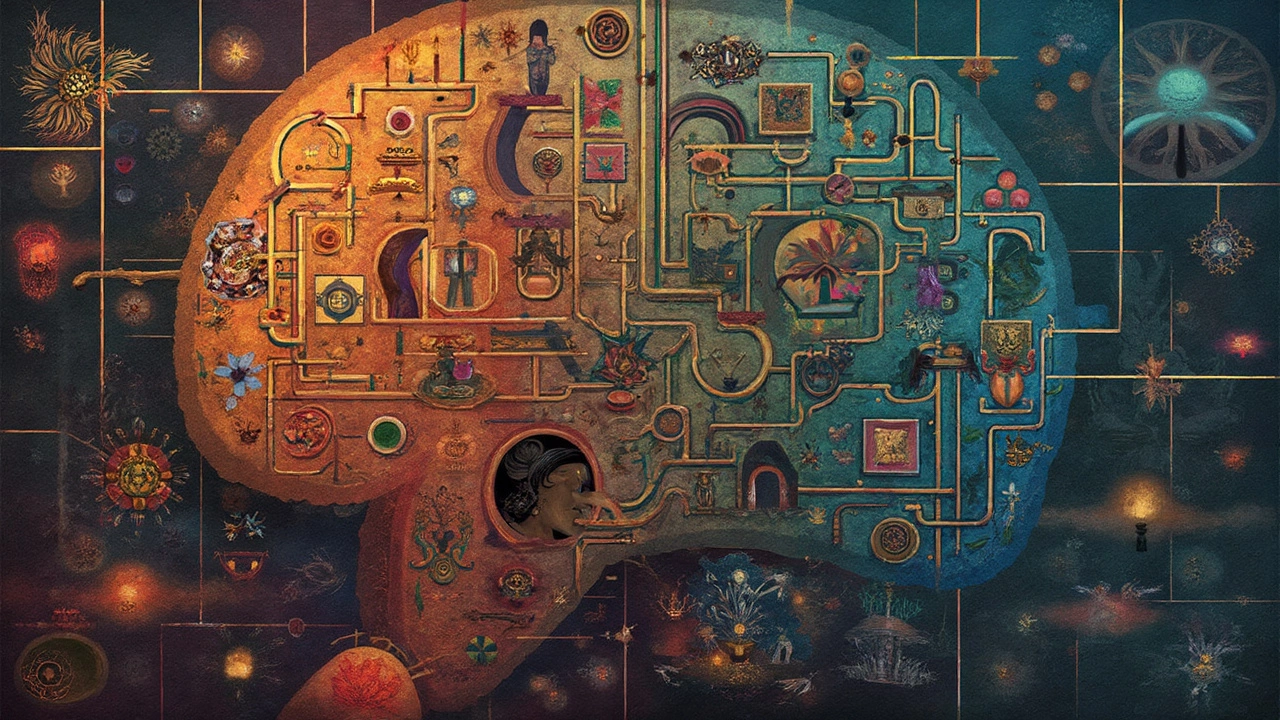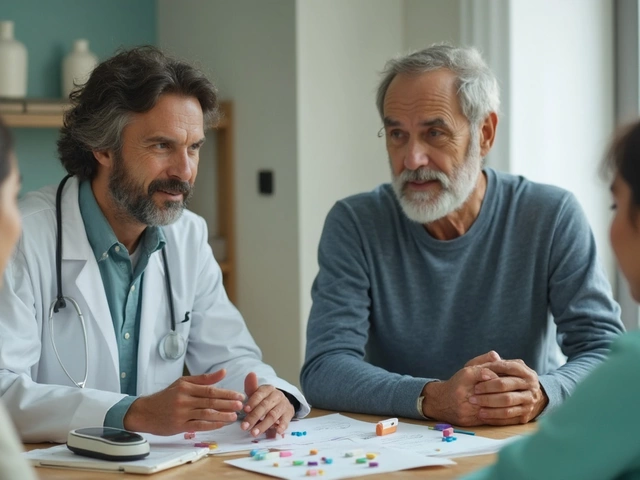
Imagine a struggle that silently chips away at a person’s health, often going unnoticed until it’s almost too late. That's the harsh reality of anorexia nervosa, the deadliest mental illness out there. It's not just about not eating or being thin; it’s a complex mental disorder with devastating effects on the mind and body.
Many people don't realize how lethal anorexia can be. With the highest mortality rate of any mental illness, mainly due to medical complications and suicide, understanding how it works is critical. The physical toll on the body, from heart problems to weakened bones, paints a clear picture of its danger.
- The Silent Struggle of Anorexia
- Why Anorexia is So Deadly
- Recognizing the Warning Signs
- Getting the Right Help
- Supporting Someone with Anorexia
The Silent Struggle of Anorexia
Anorexia nervosa doesn't exactly shout about its presence; it whispers in the confines of the mind, making it a silent yet profound battle. What makes this mental illness so insidious is how it creeps into everyday life, often going unnoticed by friends and family until its grip has tightened severely.
One of the major challenges with anorexia nervosa is the distorted self-image that those affected often have. They can look in the mirror and see an entirely different image than what is real. This inner struggle can fuel obsessive thoughts about food, body weight, and control, driving behaviors that might seem confusing or illogical to outsiders.
People suffering from anorexia might become secretive about their eating habits—skipping meals, hiding food, or consistently lying about how much they've eaten. All of these behaviors are part of their efforts to maintain control over body weight, sometimes at the expense of their own well-being.
Mental health experts point out that anorexia often co-exists with other issues like anxiety or depression, amplifying its impact. It’s like fighting multiple battles at once, which can make recovery more daunting. For instance, a person obsessing over calorie intake might also be battling panic attacks, a double whammy that complicates treatment and recovery.
Here’s where the illness gets even more dicey: it’s not just a battle against food or weight, but often against the help others try to give. Loved ones might notice extreme weight loss or other warning signs, yet approaching the topic can lead to denial or anger from the person fighting anorexia.
To give an idea of how widespread yet under-the-radar anorexia can be, here's a snapshot:
| Age Group | Approximate Prevalence |
|---|---|
| Teens (13-18 years) | 0.3% |
| Adults | 0.9% |
Even though these numbers might seem small, the impact on individuals and their families is huge. Recognizing that anorexia is more than just a physical condition is key to understanding the mental health aspects behind it.
Why Anorexia is So Deadly
When we talk about anorexia nervosa, we're not just talking about someone skipping meals or wanting to be thin. It's way more complicated and dangerous than that. This illness can be a ticking time bomb if not addressed.
First off, the body goes through severe starvation. Without enough food, the body lacks essential nutrients which are crucial for survival. The whole system is thrown out of whack. The heart doesn’t get enough energy to pump properly, leading to heart failure and other serious cardiac issues.
As if that's not enough, there are other scary effects. Bones become brittle, increasing the risk of fractures. The brain struggles without proper nourishment, leading to confusion or, sadly, even suicidal tendencies. Dr. Sarah Ravin, a clinical psychologist specializing in eating disorders, once said,
"Anorexia is not just a phase; it is a life-threatening condition which demands immediate and serious intervention."
Check out these real eye-openers:
- Anorexia nervosa has a mortality rate estimated at around 10%, the highest among psychiatric disorders.
- Approximately 1 in 5 anorexia deaths is from suicide, highlighting the need for comprehensive mental health support.
The numbers speak for themselves. Recognizing the threat that anorexia nervosa poses isn't just about reading stats—it's about understanding that timely help can save lives. Early intervention and ongoing support are key to fighting this deadly illness.

Recognizing the Warning Signs
Spotting the early signs of anorexia nervosa can be tricky, often hidden behind denial and secrecy. Yet, catching it early can make all the difference in recovery. So, what should you look out for?
First, pay attention to drastic weight loss. This might seem obvious, but it's not just about being thin—it's about losing a worrying amount of weight quickly, often without a clear medical reason.
Another big clue is an obsession with food, dieting, and calories. People with anorexia often have an intense fear of gaining weight. They might follow overly strict diets or just outright refuse to eat. Their conversations might revolve endlessly around food, even if they barely touch their meals.
Watch for changes in behavior around food. You might notice someone cutting their food into tiny pieces, arranging it meticulously on the plate, or coming up with reasons to skip meals altogether.
It's not all about eating, though. Emotional and behavioral signs can be just as telling. Look out for social withdrawal—avoiding friends, missing gatherings, or seeming uninterested in usual hobbies could indicate something's wrong.
Here’s a quick guide to help you identify potential warning signs:
- Frequent comments about feeling fat, even when underweight
- Wearing baggy clothes to hide weight loss
- Exercising excessively beyond normal routine
- Complaints of feeling cold all the time
- Hair thinning, brittle nails, and dry skin
Remember, though, that these signs alone don't mean someone has anorexia. They're red flags that suggest a conversation or a professional evaluation might be needed. Being aware of these signals and acting early can be key to getting the right mental health support and therapy.
Getting the Right Help
When dealing with anorexia nervosa, timing can make all the difference. It's crucial to seek help early, but where do you start? Let's break it down.
First off, a good step is seeing a healthcare professional who understands mental health. This isn't just about getting a referral; you need someone who gets the depth of mental illness. They may recommend seeing a therapist or a psychiatrist who's specifically trained to deal with eating disorders. This team can create a care plan that suits your needs.
Nutritionists play a vital role too. They help restore a balanced relationship with food, tailoring meal plans that consider the unique challenges of anorexia. Remember, the body needs fuel to function, and getting guidance from an expert ensures you're on the right track.
Don't forget about support groups either. Some people find comfort in sharing their experiences with others who get it. Online communities and local meet-ups can provide encouragement and a sense of belonging, which is often a missing piece in recovery.
Depending on the severity, inpatient treatment might be necessary. This is more intensive but offers a structured environment where gradual progress can be made. It includes everything from medical monitoring to therapy sessions, ensuring that both the body and mind heal together.
- Find a mental health professional specializing in eating disorders.
- Work with a nutritionist to develop a balanced eating plan.
- Engage with support groups, both online and offline.
- Consider inpatient or outpatient programs depending on the individual need.
Seeking mental health therapy signals strength, not weakness. Knowing there’s a whole world of resources and people ready to back you up can be empowering. You’re not alone in this; help is just a conversation away.

Supporting Someone with Anorexia
Being there for someone dealing with anorexia nervosa can be incredibly challenging yet rewarding. The most important thing is to approach with empathy and patience. You want to be a rock for them without pushing them too hard or making them feel judged.
Start by learning about anorexia, so you can understand what they're going through. Knowledge is power, and understanding the mental and physical impacts of this illness will help you offer the right kind of support. Remember, someone with anorexia often battles a lot of inner turmoil, so be gentle.
Encouragement goes a long way. Support them in getting professional help, and accompany them to medical or therapy appointments if they’re open to it. Professional intervention can make a significant difference. Therapies like Cognitive Behavioral Therapy (CBT) have shown to be effective in treating anorexia by helping patients change unhealthy thought patterns.
One key aspect is being mindful of your language. Compliment their strengths that aren't related to appearance or weight. Your words should reinforce their worth beyond how they look.
Patience and consistency are crucial. Recovery is a marathon, not a sprint. There will be ups and downs, and setbacks are part of the process. Stand by them through the tough days and celebrate the small victories.
In your journey to help, don't forget to take care of yourself too. Supporting someone with anorexia can be emotionally draining. Consider seeking guidance on how to manage your feelings from mental health professionals as well.
| Support Strategy | Why It Matters |
|---|---|
| Be informed | Understanding anorexia helps in providing authentic support |
| Encourage professional help | Professional treatment is crucial for recovery |
| Mind your language | Words have power, avoid focusing on weight or appearance |








